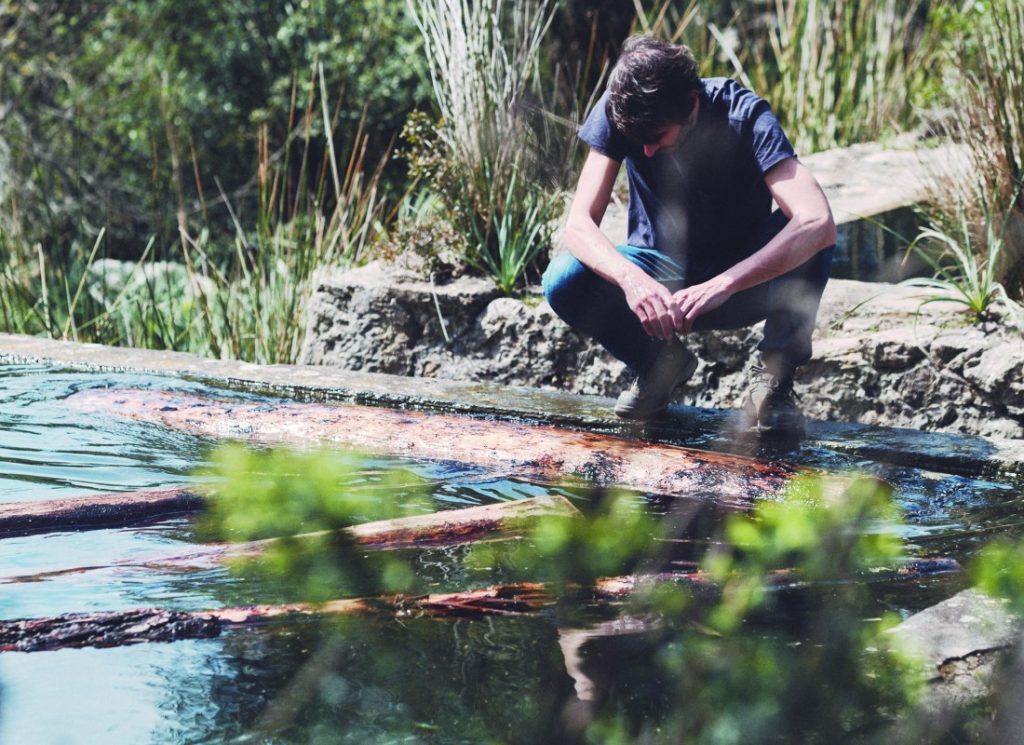In the wake of a storm accompanied by a “cap de fibló” —a kind of tornado originating from the sea— that ravaged 300,000 trees in Banyalbufar, Mallorca, a group of architects had an idea: why not turn the disaster into something positive? Thus was born Amarar, an initiative aimed at reusing the fallen tree trunks to transform them into minimalist and sturdy tables and chairs.

Rediscovering Local Craftsmanship and Sustainability
Architects and friends Francisco Cifuentes, Jaume Crespí, and Sebastià Martorell joined forces with Toni Galmés, the son and grandson of a lineage of Mallorcan carpenters who had witnessed the decline of the island’s woodworking trade. Over the years, Mallorca had seen a shift towards imported woods from Northern Europe, while local pine wood was neglected and forgotten.
Traditionally, Mallorca had a rich tradition of crafting furniture from local woods. However, as globalization took hold, the woodworking industry suffered, and the knowledge of working with the more challenging and knotty Balearic pine was lost.
The consequences were dire: from the three million trees mentioned by Archduke Lluís Salvador in his 1871 writings, Mallorca’s tree population had soared to 46 million. While this might seem positive from an environmental standpoint, it posed a significant risk. Fallen tree trunks, dry and brittle, became potential fuel for wildfires, endangering both lives and property.
Addressing Environmental and Economic Challenges
Due to the unique ownership structure of the forests in the UNESCO-recognized Tramuntana mountain range, 91% of which are privately owned, there was no incentive for landowners to clear fallen trees. Additionally, the lack of a sustainable forestry management plan meant that tree cutting was not seen as a positive measure, even though responsible logging could prevent wildfires.
Before being processed in local sawmills or carpentry workshops, the collected or felled tree trunks are left to soak in water for a year. This soaking process, known as “amarar” in Catalan, removes sap from the wood, making it more workable and resilient.
Combining Tradition with Modern Design
When Amarar was conceived, none of the project’s participants had the expertise to create the envisioned furniture pieces. However, through trial and error, they learned and experimented, with each iteration bringing them closer to their goal.
In addition to reviving local craftsmanship and promoting sustainable forestry practices, Amarar focuses on design. Their tables, for example, feature a triple-layered board construction for durability, with joints free from any metal hardware. Legs are attached to the boards using wooden wedges made from the same material. Each piece comprises only three elements: board, legs, and wedges, all crafted from Mallorcan pine wood.
The first commission for the project came from the Esment Foundation, which works with people with disabilities. This collaboration allowed Amarar to utilize 70 tons of wood to produce around 100 furniture pieces. Building on this success, Amarar is now working on creating 30 different prototypes, including bedside tables, chairs, and armchairs, collaborating with local companies to create fabrics for the backs of the chairs.
A Vision for Sustainable Living
The ultimate goal of Amarar is to reduce reliance on imported wood, create reusable furniture that lasts for generations, and promote a culture of conscious consumption. By using only locally available materials and embracing a philosophy of durability, Amarar seeks to redefine the concept of furniture, transforming it from a disposable commodity into a lasting legacy that tells stories of resilience and sustainability.
Conclusion: Crafting a Sustainable Future
Amarar’s journey from disaster to opportunity is a testament to human ingenuity and the power of collaboration. By reimagining the aftermath of a natural disaster as a chance for innovation and sustainability, Amarar has not only revitalized a local industry but also provided a model for sustainable living that can inspire communities around the world.